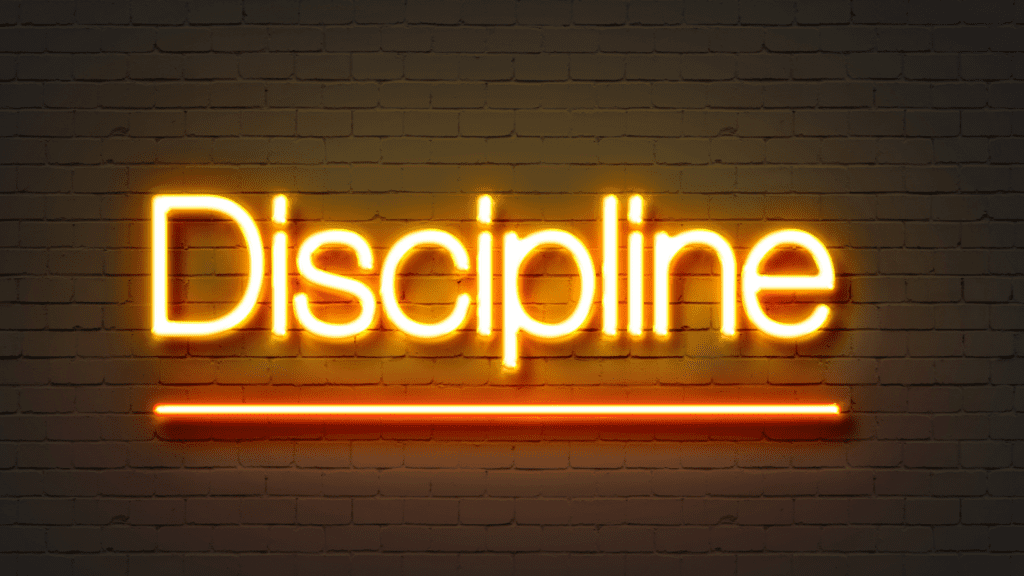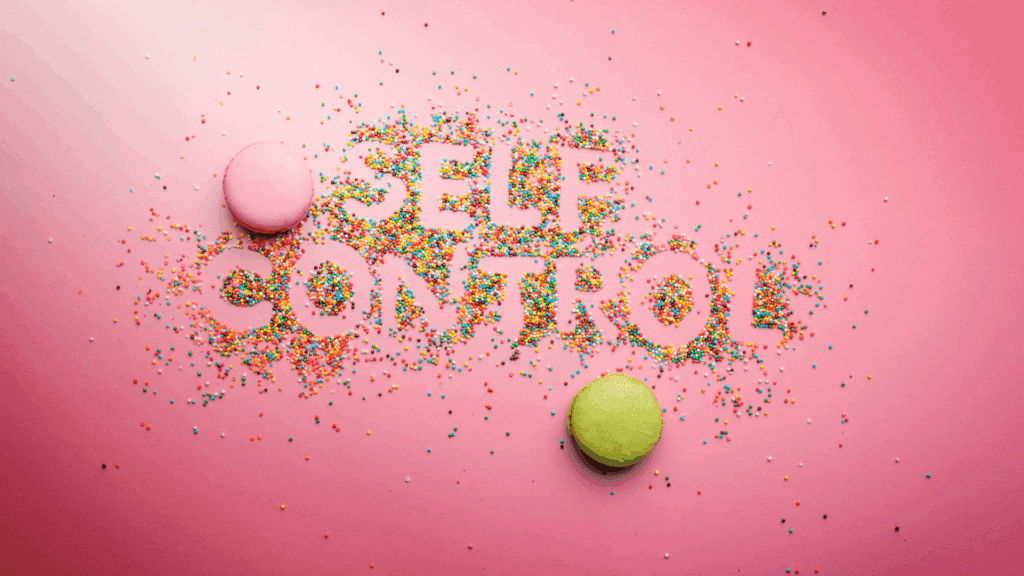The Power of Discipline in Shaping Your Life
In a world filled with constant distractions and endless temptations, the importance of self-control and self-discipline cannot be overstated. These two traits allow us to take charge of our emotions, decisions, and, ultimately, our destiny. Neuroscientifically, our brains crave both reward and stability, meaning that when we commit to strengthening our control of self and wield our determination , we’re actively rewiring our neural pathways. The result? A life that aligns more closely with our highest values and aspirations. Let’s explore why self-control and discipline are essential and how these traits can transform every area of our lives.
Why Self-Control is Your Brain’s Secret Weapon
The prefrontal cortex is the brain’s control center for willpower and self-command. It manages decision-making, impulse control, and long-term planning, all of which play crucial roles in our ability to stick to goals and resist short-term temptations. Strengthening this part of the brain is possible through repeated actions and focus, much like exercising a muscle. With consistent practice, our brains become better at prioritizing long-term rewards over instant gratification.
Why is the ability to control ourselves so essential? Because the biggest achievements in life require sustained effort and focus. Whether it’s advancing in your career, building meaningful relationships, or maintaining a healthy lifestyle, self-control and self-discipline empower us to stay on track, even when distractions arise.

Building Self-Discipline: Practical Neuroscience
Building self-discipline isn’t about restricting yourself; it’s about creating a lifestyle that aligns with your values. Integral to this is self-regulation—the ability to manage emotions, behaviors, and reactions in a way that supports long-term goals and personal well-being. People who master self-regulation use tools like mindfulness and cognitive reappraisal to stay grounded, manage impulses, and maintain focus even during stressful moments. This ability to self-regulate doesn’t just reinforce discipline; it positively impacts relationships and enhances well-being by fostering emotionally resilient behaviors that help individuals respond thoughtfully rather than react impulsively. By practicing self-regulation consistently, you build a foundation for strong self-discipline that aligns with your personal values and aspirations.
- Set Clear Intentions and Priorities: The first step to building enduring resolve and determination is clarifying what truly matters to you. Setting specific, realistic goals stimulates the prefrontal cortex, reinforcing its capacity to control impulses and make decisions that support your long-term vision. The clarity that comes from defining your goals will help you stay on track, even when faced with temptations.
- Practice Delayed Gratification: Delayed gratification is the hallmark of self-control and self-discipline. Studies reveal that individuals who can delay gratification have a stronger prefrontal cortex, which makes them more successful in both personal and professional domains. Cultivate this skill by starting with small actions, like waiting a few minutes before responding to a text or holding off on an impulse buy. These practices gradually condition your brain to prioritize long-term rewards over immediate desires.
- Use Positive Reinforcement: Neuroscience has shown that rewarding yourself for disciplined behavior releases dopamine, the brain’s “feel-good” neurotransmitter. This feedback loop makes disciplined actions feel rewarding rather than restrictive. For instance, after a productive day or a disciplined week, give yourself a small reward. Positive reinforcement is a powerful way to make self-discipline more enjoyable, enhancing your commitment over time.
Self-Control and the Power of Consistency
Consistency is at the heart of building resolve . Every time you repeat a disciplined action, your brain reinforces the neural pathways that make that behavior easier. Think of it as creating a mental shortcut: the more you practice, the more natural it becomes. Developing this consistency is like having an autopilot for your goals, as routine strengthens the brain’s commitment to positive habits.
Research indicates that habit formation can take around 66 days on average, depending on the complexity of the behavior. But the true transformation occurs when self-discipline becomes a part of your identity. By practicing self-control consistently, you build resilience, making it easier to stay focused and aligned with your goals in the face of challenges.

Strengthening Self-Management: Managing Setbacks
Every journey toward self-discipline will encounter setbacks, and these moments are a natural part of the growth process. It’s essential to approach setbacks with self-compassion rather than criticism. Neuroscientifically, self-compassion preserves the brain’s ability to stay resilient by minimizing stress and promoting a sense of calm. Here are some techniques to reinforce your self-discipline efforts, even when obstacles arise:
- Mindfulness Meditation: Mindfulness practice enhances self-control by increasing awareness of your thoughts and emotions without reacting impulsively. This helps to regulate the stress responses that might otherwise derail your disciplined efforts.
- Accountability: Having a partner with similar goals provides a support system, making it easier to stay consistent with your newly formed practices. Studies show that social accountability increases motivation and commitment.
- Visualization: Mentally rehearsing yourself achieving your goals or successfully resisting temptations strengthens your brain’s ability to perform those behaviors in real life. Visualization is like mental training, preparing you for the challenges and helping you respond with self-control.
Applying Self-Discipline to Different Areas of Life
Self-discipline isn’t limited to any one part of life; it’s a tool that can transform every area. Let’s explore how applying dedicated resolve and unrelenting persistence can bring success in three key areas: career, relationships, and personal health.
1. Career Success
In the workplace, self-discipline helps you maintain focus and productivity. It empowers you to prioritize high-impact tasks over minor distractions, enabling you to produce high-quality work. Developing habits like time-blocking, setting daily goals, and regularly reflecting on progress can significantly enhance your productivity. By maintaining self-control in managing time and resisting distractions, you also enhance your professional reputation as a reliable, goal-oriented individual.
2. Fulfilling Relationships
Self-discipline is just as valuable in relationships as it is in professional life. It helps you stay calm during conflicts, communicate more effectively, and prioritize empathy. Relationships thrive on trust and respect, both of which are strengthened through self-regulation. For example, practicing self-possession during disagreements can prevent you from saying things in the heat of the moment, fostering healthier communication patterns.
3. Personal Health and Well-being
When it comes to physical health, self-discipline is essential. Building a routine that includes regular exercise, balanced eating, and sufficient rest requires daily commitment. Practicing self-restraint around dietary choices, staying consistent with exercise, and prioritizing sleep can profoundly impact your physical and mental well-being. Over time, these choices create a positive feedback loop, enhancing your motivation to continue making disciplined choices for a healthier life.

Self-Control as a Lifestyle Choice
Imagine a life where your decisions are consistently aligned with your goals and values. This is the ultimate reward of being disciplined. It’s not just about reaching specific milestones but about feeling empowered, knowing that you have the mental strength to shape your future. Neuroscience supports this idea: the more you practice self-control, the stronger the neural pathways become, and the easier it is to make decisions aligned with your highest aspirations.
Building these core traits requires patience and persistence, but the rewards are immense. By embracing self-discipline as a lifestyle, you unlock a future where your actions reflect your aspirations, enabling you to live a life of purpose and resilience.
Embracing Discipline as Your Path to Lasting Fulfillment
The journey towards lasting discipline, is one of growth, transformation, and empowerment. As you strengthen these qualities, you cultivate the ability to resist distractions, stay focused on your long-term goals, and face setbacks with resilience. With time, self-discipline becomes more than just a habit; it becomes part of your identity, guiding you to live a life of purpose and intentionality.
Self-discipline is, indeed, destiny. Through small, consistent actions, you can build a life that is a true reflection of your values and dreams. Embrace self-discipline, let it empower you, and watch as it transforms every aspect of your life.





